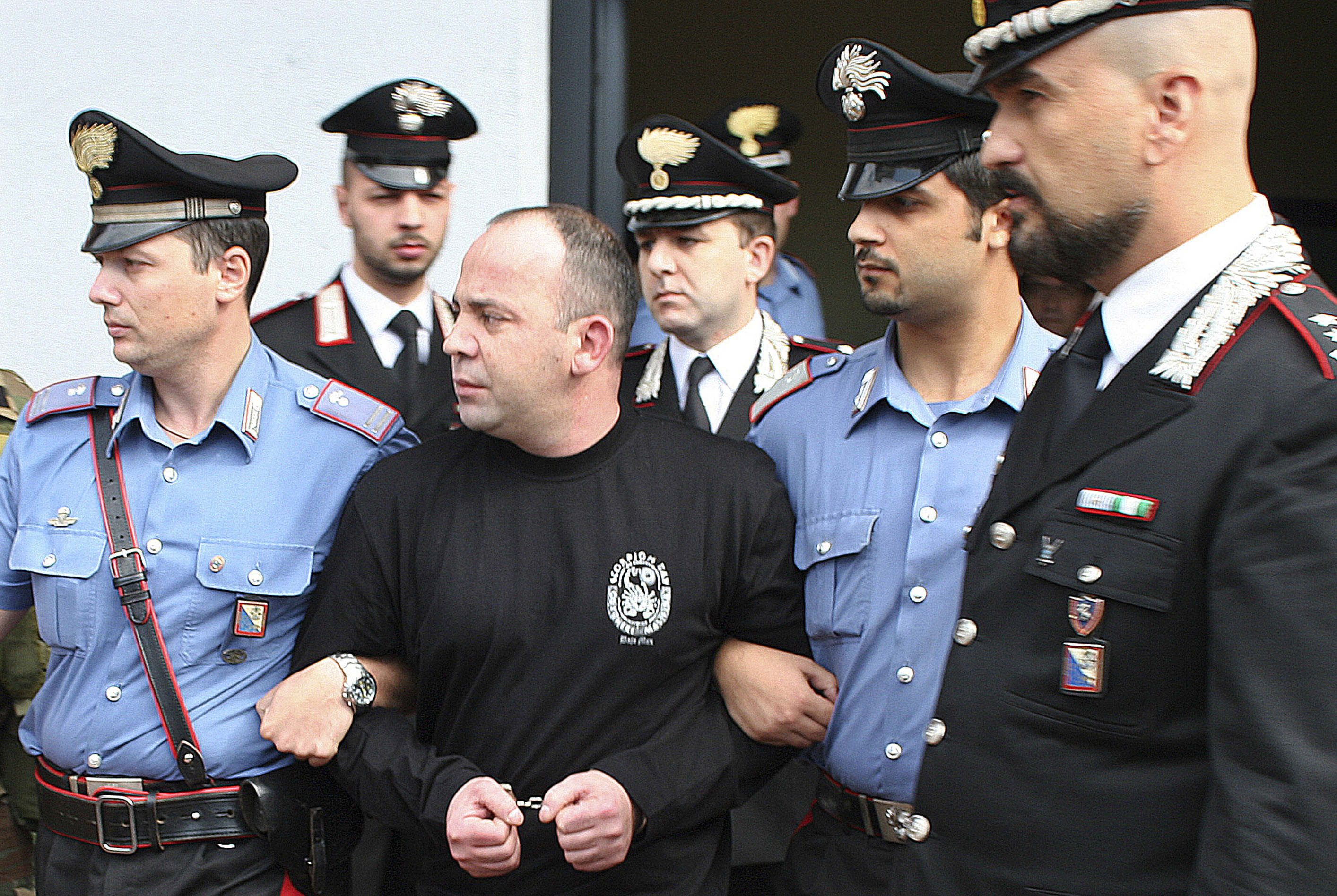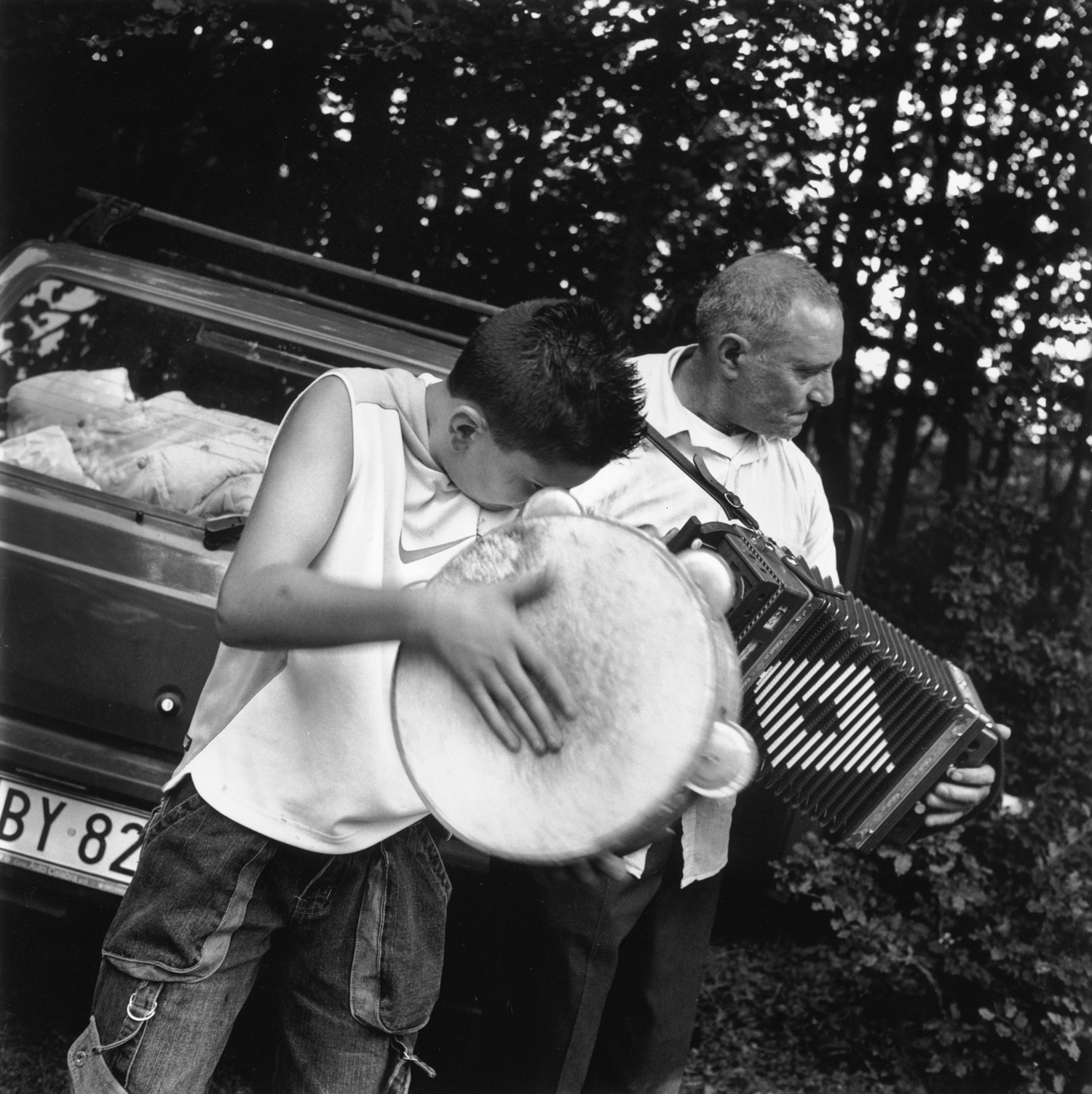Authorities brace for fight against mafia

The ’Ndrangheta, a criminal organisation based in Calabria, are at the top of the Swiss judicial authorities list of major concerns. Several experts believe Switzerland is unprepared for the battle against the Italian mafia.
“The biggest danger is posed by the ’Ndrangheta.” This was the view of the Swiss Strategy for Combatting Organised Crime 2012-2015, released by the government at the end of March.
Even if no serious acts of violence have been committed like those in the German city of Duisburg in 2007, when six people from Calabria were murdered, the organisation’s cells are already well established in Switzerland.
Experts are not surprised that alarm bells are ringing in Bern. The judicial authorities, police and some politicians have been warning for years that Italian criminals have been strengthening their presence in Switzerland.
A genuine physical presence – which has increased following pressure on the Mafia in Italy and through the “conquest” by criminals of the north of the country – has been confirmed by the recent wave of arrests in Lombardy, one of the Italian regions that border Switzerland.
Recreation
Evidence exists that this presence has reached Switzerland: in May 2011, for example, a member of the ’Ndrangheta who had lived untroubled in Frauenfeld, canton Thurgau, was arrested in Genoa.
A few months earlier, at the end of their operation “Crimine 2”, the anti-mafia authorities in Calabria had presented the international networks with important branches in Germany and Switzerland, especially in Frauenfeld and Zurich.
“In these places the structure of the Calabrian ’Ndrangheta was reproduced,” wrote the Italian investigating judge.
Conversations covertly recorded as part of the investigation leave no doubt. For example, Domenico Oppedisano, the head of the ’Ndrangheta who was arrested in July 2010, was heard talking of a “bond worth 20 million [currency not stated] in a bank in Switzerland”.
Swiss refuge
Switzerland is appreciated by the Mafia because of its “economy and financial centre as well as its infrastructure”, according to the Swiss Federal Prosecutor.
Switzerland, the prosecutor’s office added, was a sort of logistical platform where money could be laundered – and not only through banks and trustees, but also by investing in property.
It’s also a place where one can look for refuge. “In 2010, many members of Italian criminal organisations, including the ’Ndrangheta, were sent back to Italy where they had already been given long prison sentences,” according to the federal police’s annual report.
“Some of them had also committed crimes in Switzerland, drug dealing in particular. Others, however, held down a normal job for a long period without standing out.”
Too late?
The Italian anti-mafia judge Giovanni Falcone, assassinated by the mafia in 1992, warned his Swiss colleagues 25 years ago that mafiosi would follow their money to Switzerland.
Has Switzerland woken to the threat too late? The federal prosecutor pointed out that punitive measures had been coordinated at a federal level since 1994, when “being a member of or aiding a criminal organisation” became punishable. And for ten years now, the federal prosecutor has been the responsible body.
“Better late than never,” said Nicolas Giannakopoulos, founder of the Geneva-based Organised Crime Observatory.
“Finally, they’ve decided to grab the bull by the horns. Now we have to see how the problem can be addressed. The longer one hesitates, the harder it will be to pursue a line. The only way would be to cooperate a lot closer with the Italian authorities, for everything begins in Italy and ends up back there.”
Coordination
A first step in this direction was the appointment of federal prosecutor Pierluigi Pasi, who operates out of Lugano in the southern canton of Ticino, as coordinator of anti-Mafia action.
“We have enough means at our disposal,” the Federal Prosecutor’s Office said, emphasising that the creation of this new function was a “concrete example” of the will to optimise resources and coordinate investigations with the Italian authorities.
Switzerland’s federal system is often considered unsuited for combatting such crimes.
Experts, who want to remain anonymous, say the clear division of tasks between the government and the cantons is without doubt a hurdle: drug dealing, for example, is left to the cantonal police, whereas federal authorities take on organised crime and money laundering.
By and large, however, they believe the cooperation works. The problem is that investigations – already extremely complicated when dealing with impenetrable organisations such as the ’Ndrangheta – are made even harder by limits on certain methods of investigation, such as bugging, tailing or hacking into computers.
It’s not much use, they say, when these methods can only be employed when evidence has been found.
Giannakopoulos agreed. “We have to get inspiration from Italy, for example the results of measures such as confiscating assets or merchandise, which works very well. The legal structure in Switzerland is unsuited to that,” he said.
“To fight the mafia, you can’t use methods that are used to catch chicken thieves.”
According to research published by the European Institute of Political, Economic, and Social Studies in 2008, the ’Ndrangheta’s annual revenue was estimated to be around €44 billion (SFr52 billion).
This was equivalent to 3% of Italy’s GDP, and put the criminal organisation at the same level as multinationals such as Renault, Novartis or Nokia at the time.
Almost two thirds of that income came from drug trafficking, the rest coming from public contacts, prostitution, protection money and arms trafficking.
Total revenue for Italy’s four major criminal organisations (Mafia, ’Ndrangheta, Camorra and Sacra Corona Unita) was estimated at €130 billion.
Art. 260ter 1 (penal code)
Criminal organisation
1. Any person who participates in an organisation, the structure and personal composition of which is kept secret and which pursues the objective of committing crimes of violence or securing a financial gain by criminal means,
any person who supports such an organisation in its criminal activities,
shall be liable to a custodial sentence not exceeding five years or to a monetary penalty.
2. The court shall have the discretion to mitigate the penalty imposed (Art. 48a) if the offender makes an effort to foil the criminal activities of the organisation.
3. The foregoing penalties also apply to any person who commits the offence outside Switzerland provided the organisation carries out or intends to carry out its criminal activities wholly or partly in Switzerland.
(Adapted from German by Thomas Stephens)

In compliance with the JTI standards
More: SWI swissinfo.ch certified by the Journalism Trust Initiative











You can find an overview of ongoing debates with our journalists here . Please join us!
If you want to start a conversation about a topic raised in this article or want to report factual errors, email us at english@swissinfo.ch.